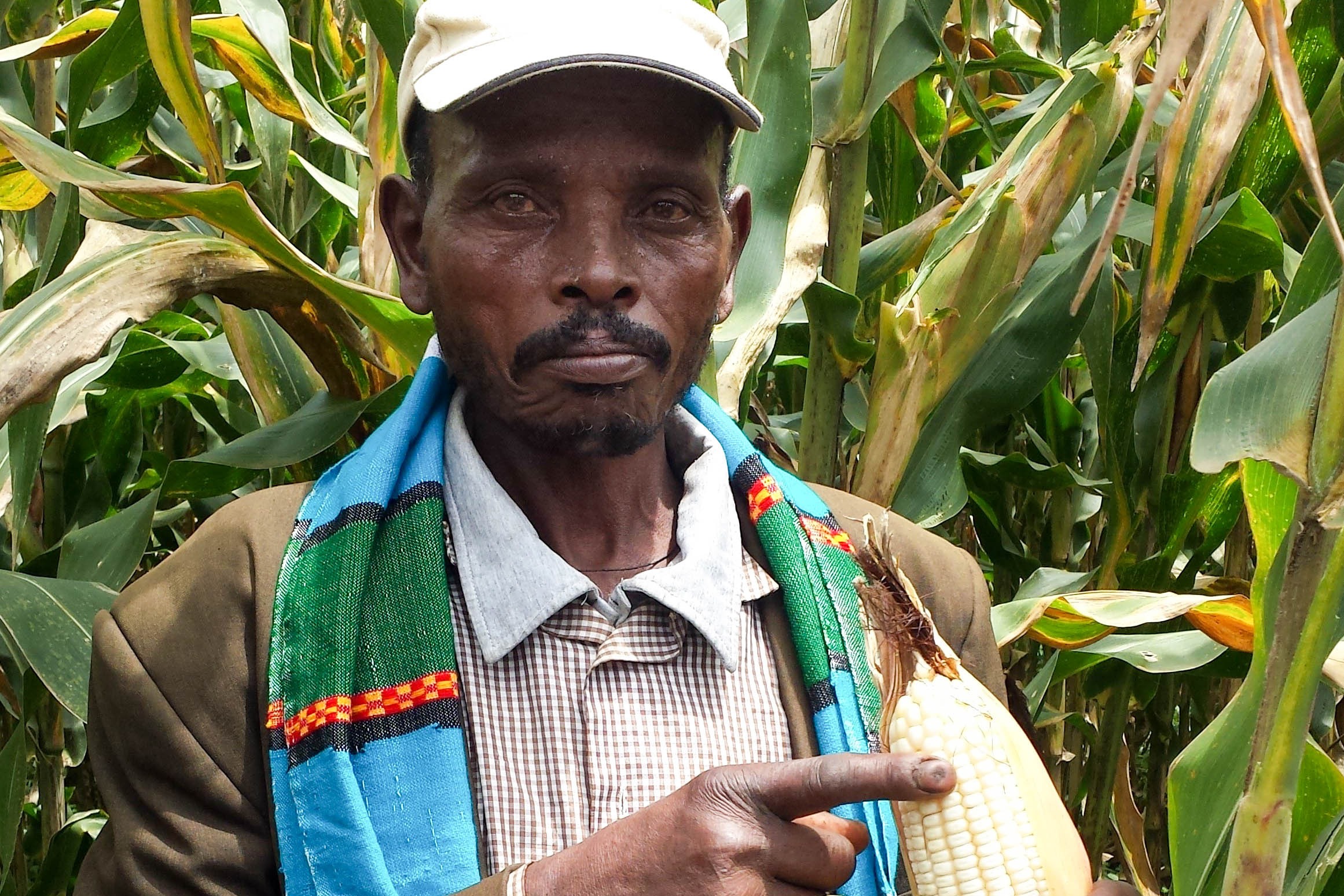
Improving the Maize Value Chain Through Public-Private Partnerships
Background
ACDI/VOCA implemented USAID’s three-year Feed the Future Ethiopia Advanced Maize Seed Adoption Program (AMSAP), a public-private partnership among USAID, Corteva Agriscience (formerly DuPont), and the Government of Ethiopia. The program’s goal was to sustainably increase more than 100,000 smallholder farmers’ yields and enhance income potential while also improving nutrition outcomes in 15 districts over four regions of Oromia, Amhara, Tigray and Southern Nations, Nationalities, and Peoples. The program used demonstration plots to show farmers the appropriate performance and result of improved high-quality hybrid maize seed varieties by providing training on use of agricultural inputs and improved technologies to increase productivity and support the marketing system to improve the overall maize value chain activities and processes. The program also used regional and district level field days on the demonstration plots to promote the importance of agricultural inputs and new technologies to small scale farmers around the demonstration plots.
Objectives
- Leveraged the private sector investment of DuPont Pioneer to enhance the incomes of 100,000 smallholder maize farmers in the four regions
- Scaled up a network for sustainable seed distribution in support of the government of Ethiopia’s Agriculture Growth Program (AGP)
Project Activities & Approaches
- Conducted demonstrations to promote and popularize the use of hybrid maize varieties
- Increased marketing of AMSAP designated farmer cooperative unions through marketing linkages in collaboration with the Purchase for Progress (P4P) initiative of the United Nations World Food Program (WFP) and with large scale processing factories
- Reduced post-harvest loss through training and introduction of improved threshing equipment, model grain storage and grain pro bags packaging
- Supported expansion of farmer/dealer networks to facilitate and support the marketing and distribution of maize hybrid varieties
- Facilitated and increased access to output credit and financing through training, coaching and linking Farmer Cooperative Unions to financial institutions
- Conducted gender and nutrition trainings to support nutrition integration and gender equity outcomes
Achieved Project Results
- Enhanced incomes of 738,132 smallholder maize farmers in 82 districts of the four maize growing regions in Ethiopia.
- 68.3 percent increase in maize yield, from the 2015 baseline of 4.39 MT/ha to 7.39 MT/ha.
- Sales of 9,030 MT of improved maize seed.
- $12,376,888 in sales of maize by smallholders.
- Provided short-term agricultural sector productivity or food security training to 184,585 individuals, such as lead farmers, extension workers and field day participants.
- Mobilized 98.4 MT of demonstration seeds from Corteva and other partners and facilitated $6,875,842 in loans to farmer cooperative unions for output financing.
- Reduced post-harvest loss to 7.85 percent by the end of the 2019 production season.
- Twenty six percent of program beneficiaries were women, and twenty-two percent of women beneficiaries reported that they now have equal say in decisions on several aspects of their household activities. The program trained 7,456 people in child health and nutrition.
Funder: USAID Feed the Future
Contact: Johana De la Cruz, JDelaCruz@acdivoca.org





